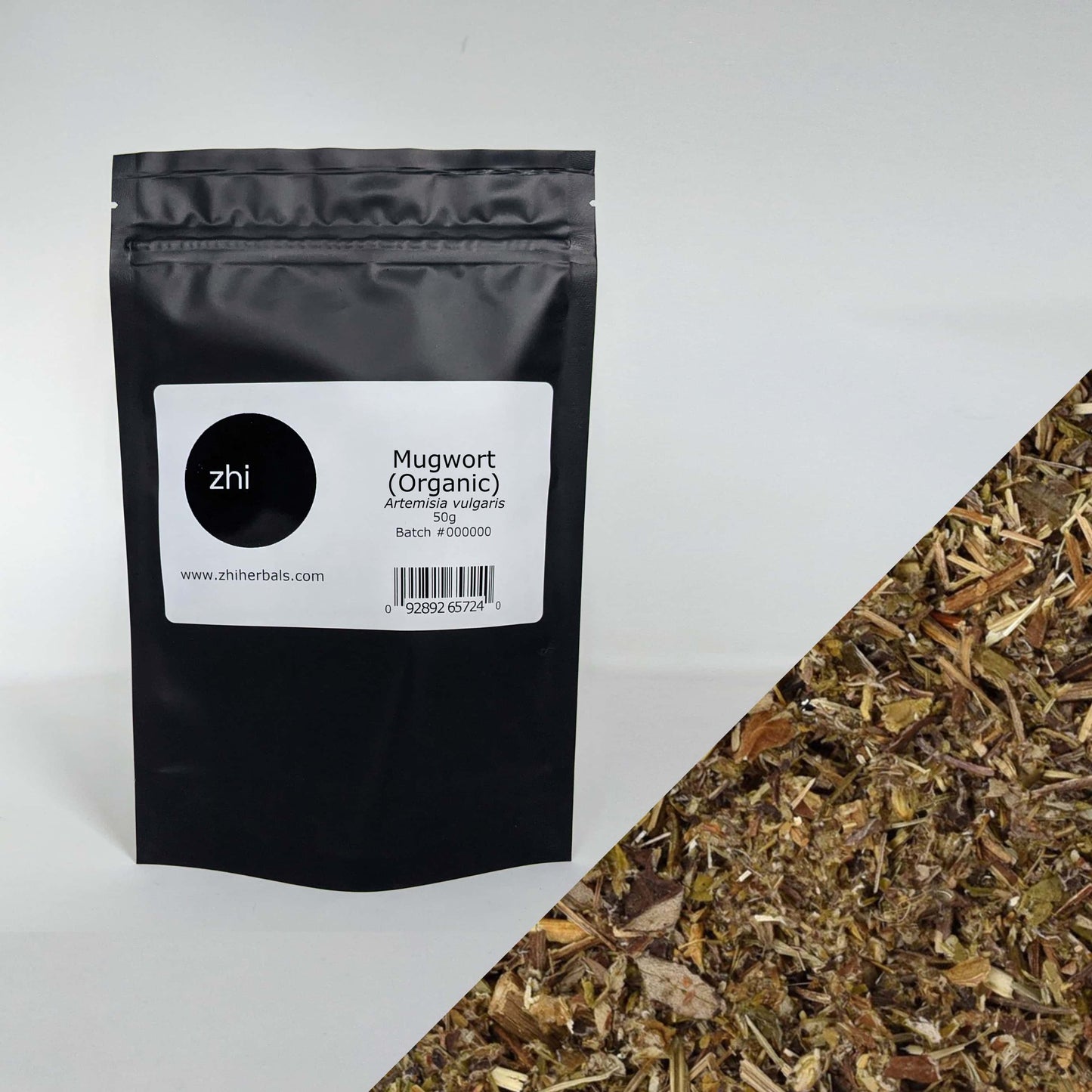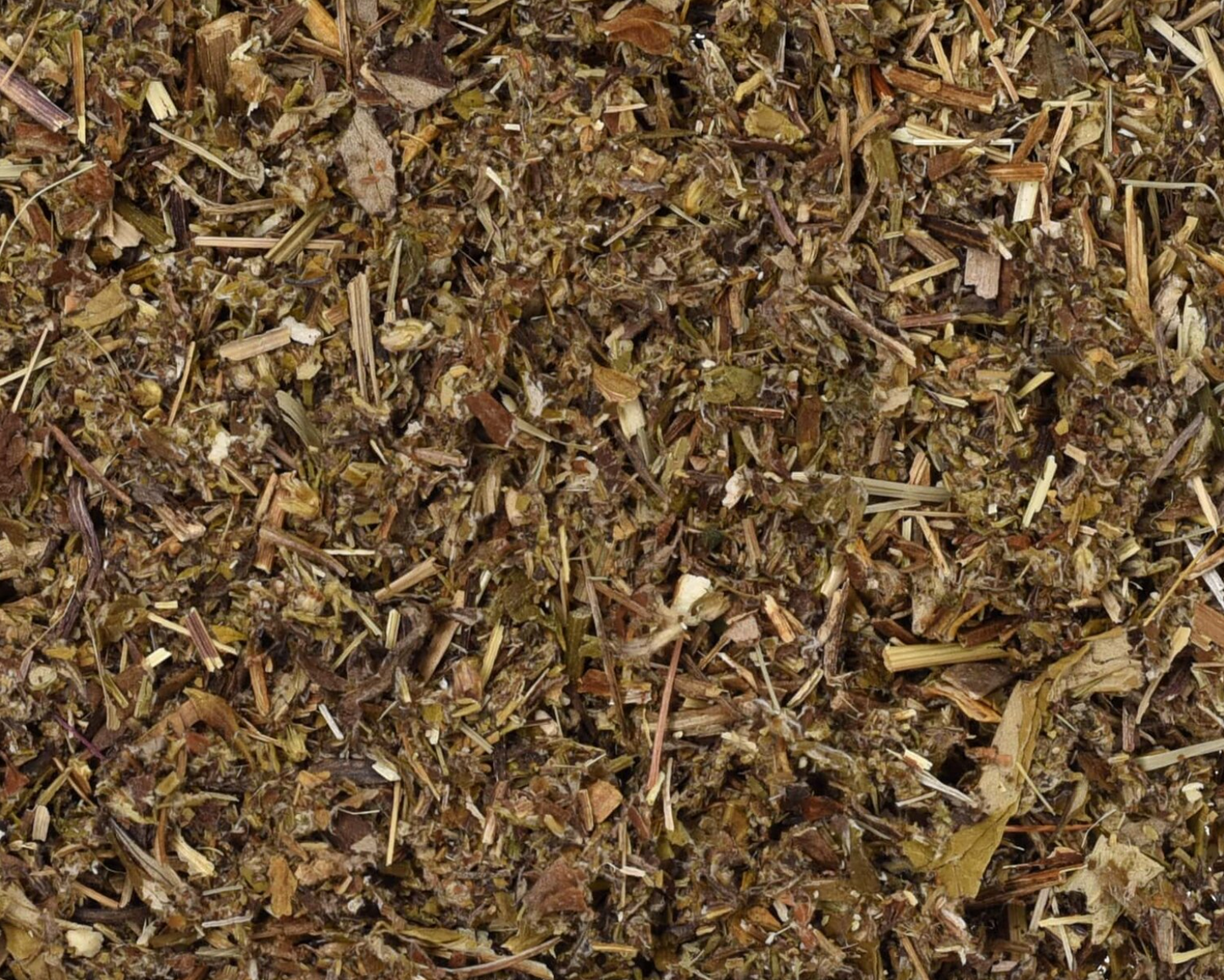Zhi Herbals
Mugwort (Organic)
Mugwort (Organic)
Couldn't load pickup availability
Common Name
Mugwort, Wild Wormwood
Latin Name
Artemisia vulgaris
Origin
Albania
What Is Mugwort?
Mugwort is a medicinal herb that is native to the British Isles, and has a long history of use throughout the world. It works well both on its own and when combined with other herbs.
How to Use Mugwort (Common Uses)
Mugwort can be taken internally as a tea, powder, capsules, or extract. Mugwort can also be burned or placed in sachets. Visit our herbal blog for more ideas about how to use mugwort.
Medicinal Uses and Benefits of Mugwort
Mugwort is closely related to wormwood, although gentler in its actions. When taken internally, it can help to stimulate digestion and acts as a carminative. As well, mugwort is potent at bringing on a late menstrual flow, and has been used to enhance dreaming.
Active Constituents in Mugwort
Thujone, berneol, cineole, pinene, sesquiterpene lactones, flavonoids, coumarins, tannins.
Notable Facts About Mugwort
Mugwort’s botanical name, Artemesia, refers to the Greek goddess Artemis, who was a huntress and master of medicine, specifically for women and girls. Mugwort leaves rubbed on the body or worn as a necklace are purported to help repel ghosts and dreams about the dead. John the Baptist is accounted as having worn a girdle made of mugwort when venturing into the wilderness, and crowns were sometimes made to protect against misfortunes. Mugwort can be smudged to cleanse negative energies/spirits, hung in doorways, and made in to satchels to assist with dreaming.
Share


If I could give ten stars, you would definitely get it
Good-quality product, reasonably-priced, securely packaged, shipped fast
Good quality product , very cheap , shipped in 1 week
Goood good shipping & delivery, no problem what so ever &a minute currently about to buy another batch
I had read that Mugwort, taken as a tea, as a tincture or smoked, could help me recollecting dreams and I wanted to give it a try. But where to buy this plant? I googled my search and discovered Zhi Herbals who offered an organic bag at a reasonable price and with free delivery. I am so much pleased with Zhi Herbals that I added it's URL to my browsers favorites and I'm spreading my find with friends.


